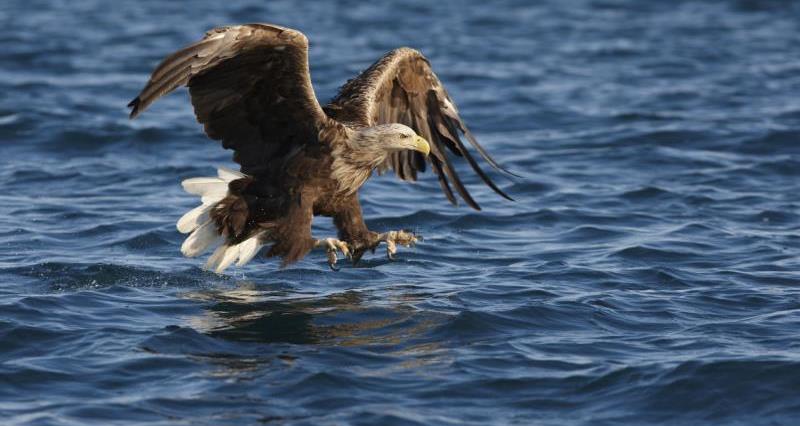The government has published its response to the Efra Committee’s report on species reintroduction, stating that “the reintroduction of species is not a priority for the government” and that many of the committee’s recommendations won’t be progressed.
The NFU welcomed the Efra Committee’s report and expressed disappointment that that the government won’t be taking the majority of its recommendations forward, especially the recommendation to create a species reintroduction strategy.
Read: Species reintroduction ‘not a priority’ at this time, says Defra.
We’ve summarised the government’s response to the Efra Committee’s recommendations and the NFU’s reaction below:
Interim species abundance targets and reporting every two years
In its response, the government has pointed to interim targets published in the EIP (Environmental Improvement Plan) in January this year. It added that the time taken for data collection and reporting makes reviews every 2 years impractical, however the government are looking to identify other short-term metrics that can help measure our progress towards meeting the targets.
The NFU has highlighted the important role of farmers and growers in delivering the environmental targets while also producing food, and the need for clarity about how exactly this could be achieved through ELMs.
List of priority species, register, classification and long-term strategy on species reintroduction
Reintroduction is not a priority for the government, and it will not be producing a strategy, a list of priority species for reintroduction or set approach to managing high/low risk species. The government has said it has already produced the best practice guidance in the Code for Reintroductions alongside information on applying for a licence. Applications for a licence will be dealt with on a case-by-case basis.
Although the prioritisation of other policy areas is welcome by the NFU, if species reintroductions are still a possibility, we do need a clearer idea about how government will manage any future reintroduction proposals as well as its long-term vision for existing reintroduced populations.
England Species Reintroduction Taskforce
The Efra Committee recommend that the England Species Reintroduction Taskforce needs to engage with key stakeholders before 2024 and that the government needs to provide clarity about the role and terms of reference of the Taskforce by October 2023.
In its response the government has said its terms of reference were agreed in 2022 and published online via a dedicated website.
The Taskforce has plans to meet with stakeholders such as landowners and manager this autumn. It aims to bring together experts from a range of disciplines to provide evidence-led advice and guidance on existing and potential species conservation translocations in England.
The NFU will be meeting with the Taskforce this autumn to discuss members’ thoughts about conservation translocations.
Species reintroduction code and guidance
Responding to the committee's recommendation to revise and reissue the species reintroduction code and guidance by January 2024, Defra has said the document was first published in 2021 and is based on international best practice guidance and therefore they not not feel a revision is needed at this time.
The NFU would still like to see the code and guidance strengthened in several areas including on what is required on stakeholder consultation, project management and exit strategies. We also need clarity from the government about how the code is applied, and the factors considered when a species introduction licence application is reviewed.
Rapid response consultants
On the point of support and funding for farmers and land managers, and a network of rapid response consultants, the government has said any release proposal should provide this management support and funding to manage the impacts. The government’s focus remains on incentivising delivery of wider environmental benefits through ELMs.
The NFU is concerned that once a project comes to an end or where there are illegal populations, land managers and farmers don’t have this support or funding to deal with any impacts and therefore take on the costs. The government should provide this longer-term support and funding where needed.
Protected status of beavers
The government has said that, given the fact beavers were given protected status last October, it is too soon to review this. As such, it would not be appropriate for the taskforce, which has no formal role in decisions of this nature, to undertake a review of the protected status of beaver.
The NFU is concerned about the impacts of beavers on farming businesses and the need for effective management.
